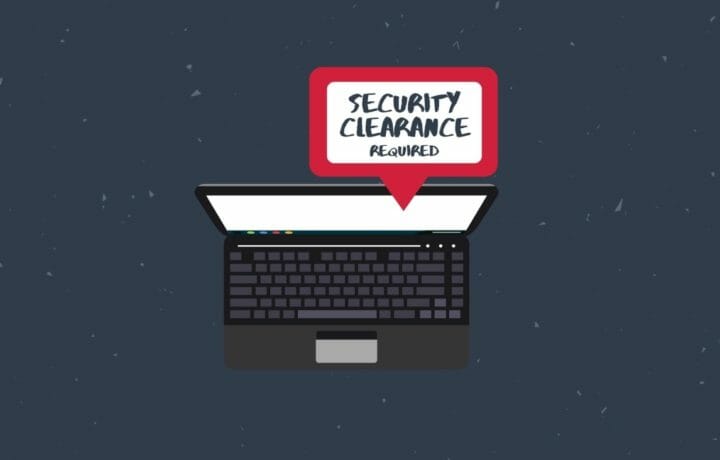The security clearance application process is an arduous one. The Standard Form 86, or SF-86, is the questionnaire used to obtain a Secret or Top Secret security clearance, and it’s 127 pages long. Additionally, the interview process, which reviews the information on that questionnaire, can be mentally stressful if you have any skeletons in your closet. It’s no wonder that many security clearance applicants whose job offers are rescinded, or whose assignments may no longer require a clearance want to preserve as much of their application as possible. In fact, applicants who know they will pursue other cleared positions may even want to complete their application now, in the event they could use their newly minted clearance down the line. There’s good and bad news for those applicants.
First, the Bad news on your clearance
The bad news is that without a sponsor—e.g., an employer who is giving you a job for which security clearance is required—you won’t be able to complete this security clearance application process, says Charles McCullough, III, a national security attorney and partner at Compass Rose Legal Group. “A clearance is a privilege, not a right,” McCullough says, and without a demonstrable need-to-know, you cannot get clearance.
That’s true at any point in the application process, he says, no matter how far—or long—it has gone on. “The fact that the background investigation process has started does not mean that it will necessarily conclude,” McCullough explains. “The government is under no obligation to continue [an investigation] for any individual who is no longer appropriately sponsored,” and the government “does not continue with [an investigation] just in case the applicant may find a clearance useful at some point in the future,” he says. “There must be a specific need for access.”
Some Good News for your Half Completed SF-86
But the good news is that applicants who have started but can’t complete the application process have not necessarily wasted their time. If you find another opportunity for which you will need a clearance, the eQIP or eApp systems—where you filled out the SF-86—can re-populate the most recent information submitted on previous applications on subsequent applications, says McCullough, “and so, it is possible to essentially pick up where you left off with the initial application.”
However, that re-population isn’t automatically guaranteed. If you reapply for security clearance through the same agency—for example, if both applications were for jobs at the Department of Defense—your SF-86 should re-populate and the new investigator will likely use information collected in the first investigation. But if your first security clearance application was for a job at the NSA and your second application is for a job with DHS, you will have to start the application from scratch, says R. Scott Oswald, managing principal of The Employment Law Group, P.C. That’s why Oswald tells clients who have to walk away in the middle of the application to save everything they’ve submitted in the process.
Save All of Your SF-86 Documentation
If you have to stop before a security clearance application is complete, Oswald recommends that you keep a copy of your SF-86. “If you have to pick it up at some point in the future, you need to know what you said previously,” Oswald explains. (You can download your copy from the electronic records system.)
He also recommends that you keep track of the correspondence you had with the investigator who reviewed your first application. “Oftentimes, in a re-investigation, the same issues will come up again,” Oswald says. If you have detailed notes on what you’ve said in the past, “this will allow you to simply regurgitate what you have already given previously and you don’t have to worry about saying something that is different from what you said before,” Oswald explains.
Lastly, he suggests keeping handy any documents you submitted in the application process. For example, if you turned in a passport to support foreign travel (or lack thereof) or a copy of a certification you hold, keep those documents accessible in case you need to turn them over again.




